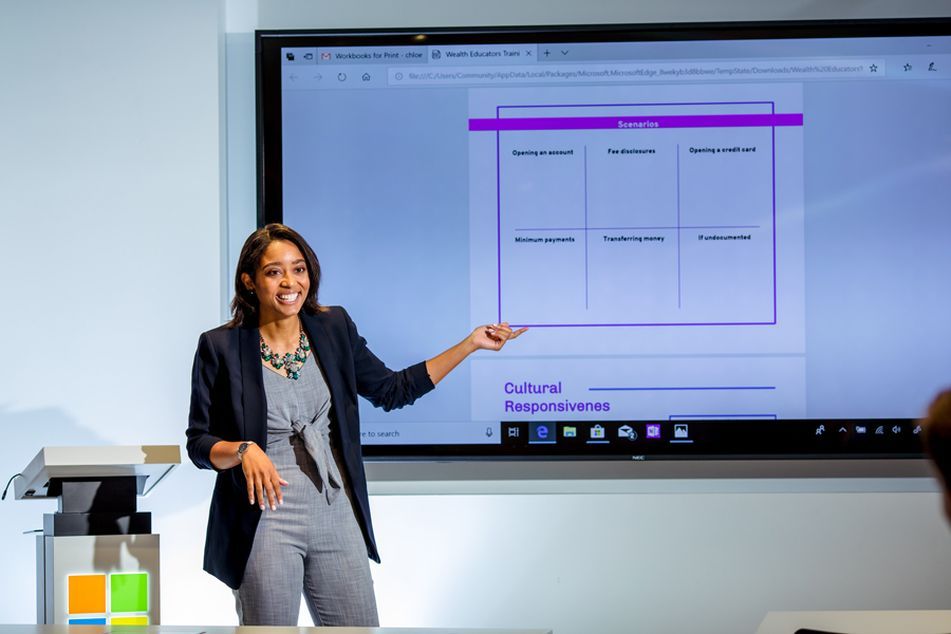Teaching financial literacy through allowance doesn’t work for everyone

BlackFem program in New York has spread to six states.
Chloe McKenzie’s first foray into financial services was as a mortgage trader for JPMorgan, but it was the work she did at a homeless shelter on the weekends that she found more stimulating.
Ms. McKenzie acted as a financial counselor at the shelter, trying to help people build wealth when they were starting from literally nothing. It’s a moral, professional and intellectual challenge that guided Ms. McKenzie as she left Wall Street to become a teacher and later launch BlackFem Inc., a nonprofit aimed at helping women of color build wealth by making financial literacy a cornerstone of public school education.
“I’ve always loved education, and felt it was a place I could marry my passions — educating, working with the disadvantaged, and finance,” she said.
While many financial literacy programs are standardized, BlackFem builds curricula customized to the specific needs, disadvantages and culture of individual schools and classrooms, including students with learning differences. Though BlackFem is built with low-income, urban girls of color in mind, the program works in low-income, co-ed schools as well.
“Most people think you can teach kids how to build wealth and money through allowance, but that doesn’t work for kids in public housing. It excludes them from the discourse,” Ms. McKenzie said.
For her, it’s the same principle as an adviser’s fiduciary duty to build a financial plan tailored to each client.
“If we’re going to customize things for all our clients, why don’t we customize it for all of our students?” she said.
One of BlackFem’s programs is the “kids’ credit bureau,” where students get a credit score linked to homework completion, attendance and tardiness to teach them the link between financial trajectories, good behavior and academic performance.
Core subject
The goal is to have financial education taught five days a week for all students, pre-K through 12th grade, as a core subject alongside math, science and English.
The organization also offers in-house programs for women and girls, programs training teachers how to deploy the BlackFem curriculum, and wealth education for families.
Since BlackFem launched in 2015 in New York City, it has spread to 12 states. Six thousand girls and women have gone through the in-house program, and 12,000 students through the program in schools.
Ms. McKenzie also does financial education and coaching for individuals and institutions with her company, On A Wealth Kick.
It’s an impressive accomplishment for anyone, let alone someone age 26. When asked what drives her, Ms. Mc- Kenzie said she grew up in a financially privileged family, but was the victim of child abuse. She credits education for her survival and sees helping others as a form of healing.
“All of that informed how I was able develop this career,” she said. “When I entered the financial services industry, I realized, oh my gosh, for all of these externalities or larger issues, the main root cause is we don’t have a financially inclusive society and there’s no desire or huge push or movement of why wealth and financial literacy is actually the tool for us to fix these issues.”
Learn more about reprints and licensing for this article.








